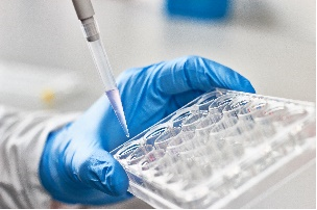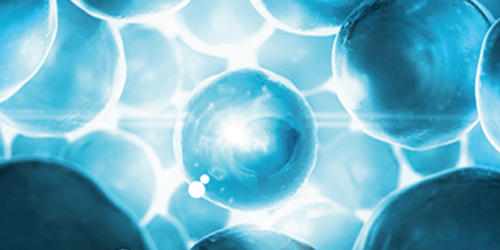Background Services Overview Published Data Protocols Related Products Q&A Resources
With a proven reputation, innovative complement autoantibody test technology, high-quality assay results and a deep
commitment towards addressing customers’ needs, Creative Biolabs provides a comprehensive range
of complement autoantibody test services to advance your diagnostic and therapeutic discovery.
Background
Background of C3 Autoantibody
C3 is a convergent point of the complement system, common between the classical, lectin, and alternative pathways.
It is a complex protein, which generates different functional activated fragments (C3a, C3b, iC3b, C3c,
C3d). These components play a critical role in orchestrating inflammatory and immune responses as well as
in the clearance of immune complexes, but the autoreactivity to complement components may have
considerable pathological consequences. Numerous studies show that autoantibodies against the central
complement component C3 have been associated with many autoimmune diseases, such as SLE or Crohn disease, nephrotic
kidney diseases and dense deposit disease (DDD), but their molecular mechanism is not well
understood. To date, anti-C3 autoantibodies have been proven to inhibit the inactivation of C3b to iC3b by
factor I in the presence of complement receptor 1 (CR1) as a cofactor and to prevent the clearance of apoptotic
cells by mouse but not human macrophages.
Anti-C3 Autoantibody Test

Anti-C3 autoantibodies are usually measured through enzyme-linked immunosorbent assay (ELISA) with
purified C3 immobilized on the microtiter plate. After antigen coating, the plates are blocked by the addition
of PBS containing 0.25% Tween 20 and plasma is diluted 1:100 with the same solution. The binding of
anti-C3 autoantibodies is determined by an anti-human IgG peroxidase-labeled antibody diluted 1:1000 in PBS
containing 0.25% Tween 20, and a 3,3,5,5' tetramethylbenzidine substrate system. Alternatively, plasma
samples are serially diluted starting from 1:50 and applied on coated and blocked plates to evaluate the
dose-response of the binding of the autoantibodies.
Services Overview
Our Services of Anti-C3 Autoantibody Test
For more than a decade, we have successfully developed and qualified ELISAs for several purposes. As a
one-stop-service provider, Creative Biolabs offers a wide range of complement test services to
accomplish your development project. Our research scientists are professional in ELISA assay development and can
assist clients based on their requirements. With our team of scientists' extensive experience in complement
autoantibody test, we provide rapid, reliable, sensitive and cost-effective anti-C3 autoantibody test
services and solutions.
Service highlight:
-
Years of experience in the development of ELISAs against various targets
-
Services from experienced and trustworthy scientists
-
Guaranteed results with sensitivity & reproducibility and timely delivery
-
Strong commitment to quality and service
We have abundant experience in developing various forms of testing methods. We can also work directly with you to
design an assay that achieves your objectives. If you want to know more, please feel free to contact us.
Published Data
Presented are findings showcased within articles pertaining to C3 autoantibody test:
1. Anti-C3 autoantibody ELISA
 Fig. 1 Titers of anti-C3 autoantibodies in patients with LN compared to healthy donors (HD) (a) at cross-section, at first available sampling and (b) in all available follow-up samples.1, 2
Fig. 1 Titers of anti-C3 autoantibodies in patients with LN compared to healthy donors (HD) (a) at cross-section, at first available sampling and (b) in all available follow-up samples.1, 2
Vasil et al. used an established protocol to compare anti-C3 and anti-C4 IgG levels in healthy donors with
LN patients by ELISA. In a cross-sectional analysis, we detected anti-C3 autoantibodies in 23 LN patients,
respectively. The longitudinal study showed elevated anti-C3 IgG in 30.2% of samples. There was a weak but
significant correlation between cross-sectional and kinetic anti-C3 and anti-C4 titers. Anti-C3 antibodies were
found in young patients, whereas anti-C4 antibodies were not associated with age.
Protocols
Related Products
Resources
References
-
Vasilev, Vasil, et al. "Clinical relevance of anti-C3 and anti-C4 autoantibodies in lupus nephritis." Kidney International Reports 9.5 (2024): 1429-1440.
-
under Open Access license CC BY 4.0, without modification
Questions & Answer
A: C3 plays a central role in the activation of the complement system. the activated form of C3 is the target of autoantibodies. Autoantibodies against the central complement component C3 are called anti-C3 autoantibody. IgG against C3b were discovered in the late twentieth century, when they were named immunoagglutinins. They are associated with the severity and onset of disease.
A: Anti-C3 autoantibodies have been detected in systemic lupus erythematosus (SLE), lupus nephritis (LN), Crohn's disease, some nephropathies, dense deposition disease (DDD), C3 glomerulopathy (C3G) and immune complex glomerulonephritis.
A: It is critical to determine whether anti-C3 autoantibodies are protective, disease-associated, or simply incidental. This is because anti-C3b autoantibodies have obvious functional consequences. More experimental studies are needed to confirm their role in disease pathogenesis and their relevance as biomarkers for clinical practice.
A: While our service can provide valuable data that may aid in disease research and discovery, it is primarily designed for scientific experiments and not intended for use in clinical diagnostic procedures. The cost of the service can vary depending on various factors including the nature and number of samples, techniques used, and data analysis required. Please contact us for a detailed quote.
For Research Use Only.
Related Sections:


 Fig. 1 Titers of anti-C3 autoantibodies in patients with LN compared to healthy donors (HD) (a) at cross-section, at first available sampling and (b) in all available follow-up samples.1, 2
Fig. 1 Titers of anti-C3 autoantibodies in patients with LN compared to healthy donors (HD) (a) at cross-section, at first available sampling and (b) in all available follow-up samples.1, 2


